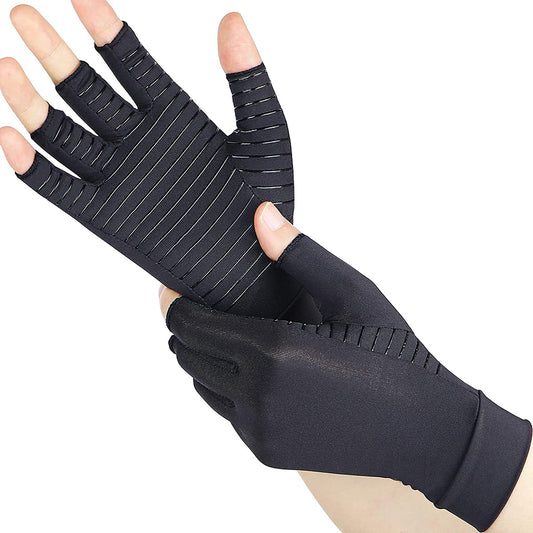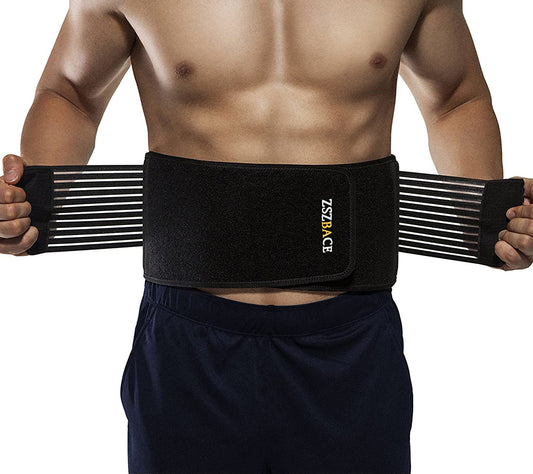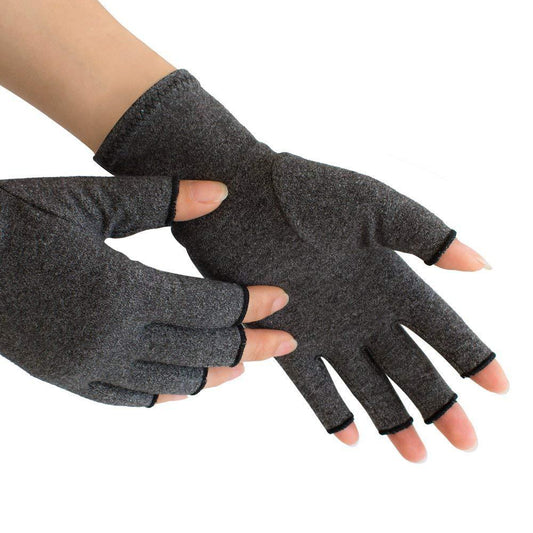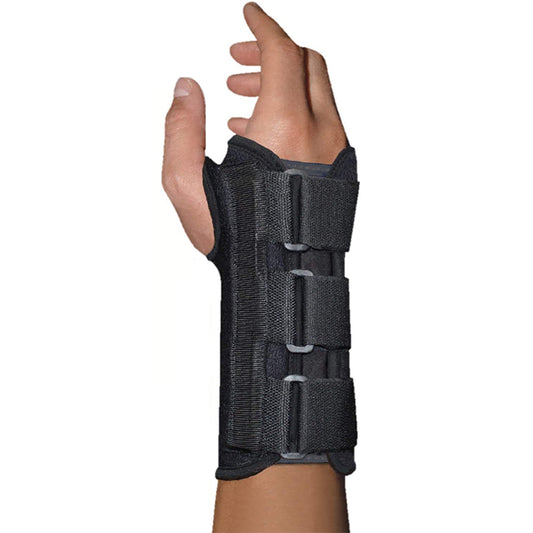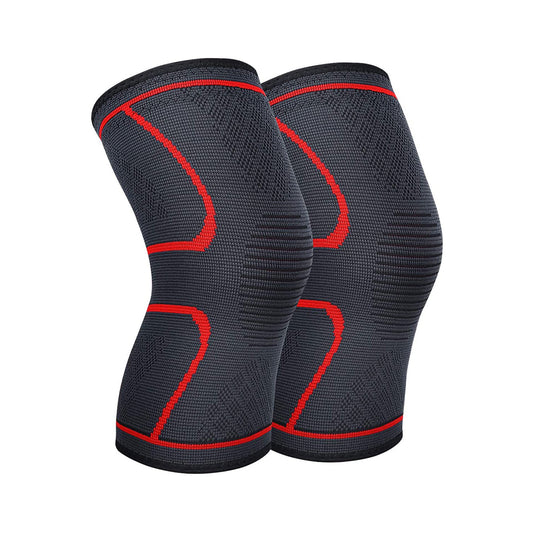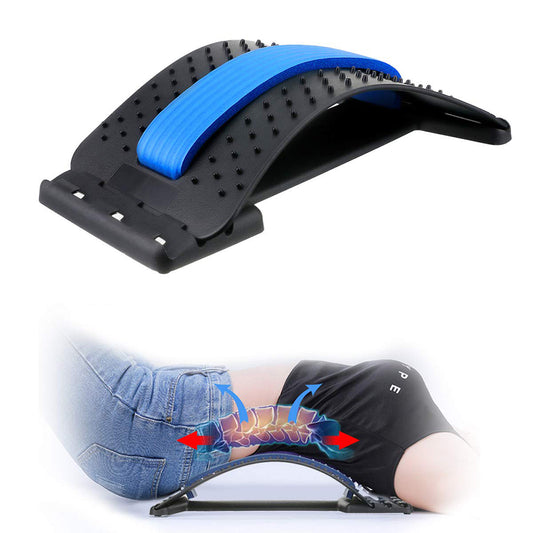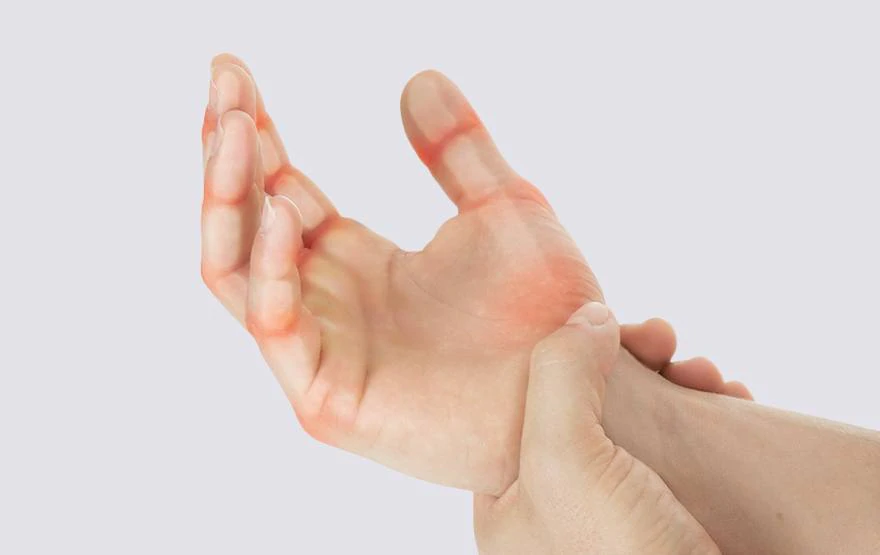
How Compression Gloves Can Help Carpal Tunnel Syndrome
Share
Carpal tunnel syndrome is a series of symptoms usually caused by pressure on the median nerve, which controls the thumb and first three fingers from the wrist to the forearm. The carpal tunnel is located at the base of the hand and is a narrow passage for ligaments and bones. From time to time, inflamed nerves and tendons tend to inflate the inside of the tunnel and compress the median nerve, causing weakness and numbness in the wrists and palms, and sometimes the forearms.

What are the symptoms of carpal tunnel syndrome?
Symptoms of carpal tunnel syndrome often begin with numbness and weakness, gradually paving the way for the next.
- Occasionally inflamed and itchy fingers and palms
- Reduced grip strength and ease of gripping small objects
- Frequent severe pain and numbness
- I am weak and cannot perform manual tasks
- I can't feel the difference between heat and cold
Who is most likely to develop a carpal tunnel?
Working women between the ages of 45 and 60 are at increased risk of carpal tunnel syndrome.
- A person with a broken wrist or previously dislocated.
- People with rheumatoid arthritis or other inflammatory diseases.
- Diabetes
- People with nerve damage
- A specialist who repeatedly applies pressure to the wrist for a long time. (These tasks include sewing, knitting, working on assembly lines, accounting, baking, and playing musical instruments).
- Effective treatment options for carpal tunnel syndrome
Carpal tunnel treatment should be started as soon as possible to avoid long-term damage to the median nerve. All the underlying causes of CTS, such as arthritis and diabetes, need to be treated first.
Anti-inflammatory drug
In special cases, over-the-counter medications are prescribed to relieve the pain, stiffness and swelling associated with the carpal tunnel. These NSAIDs include ibuprofen, aspirin, and other painkillers that provide short-term relief. Although these medicines are effective in relieving discomfort, they do not address the underlying cause and therefore cannot cure the illness itself.
Alternative therapy
Yoga has been shown to be very effective in reducing pain and increasing grip strength. Chiropractic and acupuncture also provided considerable relief for people with carpal tunnel syndrome. However, the effectiveness of alternative therapies remains largely unapproved.
Surgery
Carpal tunnel surgery usually cuts the ligaments around the wrist to relieve pressure on the median nerve. This is an outpatient procedure performed under local sedation and does not require an overnight stay in the hospital. This procedure is used to correct the carpal tunnel and can be done using two methods: open surgery and endoscopic surgery. Laparotomy is a traditional procedure that requires a 2-inch incision to widen the tunnel, while endoscopic surgery requires two approximately 0.5-inch incisions in the wrist and palm. One is for inserting the camera and the other is for cutting the ligaments of the wrist. Endoscopic surgery speeds recovery and reduces postoperative discomfort.
Non-surgical intervention
Non-surgical intervention begins with wearing a splint at night, followed by some precautions that must be followed during daily activities to avoid painful symptoms. It is also helpful to use an ice pack and take frequent breaks. At work, you can stretch, sit in the correct posture, and wear fingerless copper compression gloves to keep your hands flexible and functional without any pain or discomfort.
Copper compression gloves
Wearing copper gloves on the carpal tunnel can help relieve the worst symptoms by improving blood flow and providing adequate oxygen. Copper compression gloves complement ongoing carpal tunnel treatment by improving mobility and reducing stiffness, making routine activities easier and painless.
Benefits of wearing copper gloves for carpal tunnel patients
Gloves soaked in copper also protect you from infections caused by pathogenic microorganisms. Fully durable, these gloves are made of 100% natural copper and are deodorant and antibacterial. The combination of compression and copper in these compression gloves is ideal for carpal tunnel patients. The reasons are as follows:
-
Copper-injected gloves help relieve inflammation and reduce discomfort caused by stiffness in muscles and joints.
- Fingerless copper dip gloves greatly reduce finger and thumb pain and stiffness, making objects easier to feel, touch, type and grab.
- Copper gloves for carpal tunnels are designed to reduce joint inflammation by regulating blood flow and oxygen supply.
Designed to be worn all day long, these copper-plated gloves are ideal for hand recovery and pain relief. You no longer have to wait to seek relief from the symptoms of the carpel tunnel. Buy Copper Compression Gloves Now!


